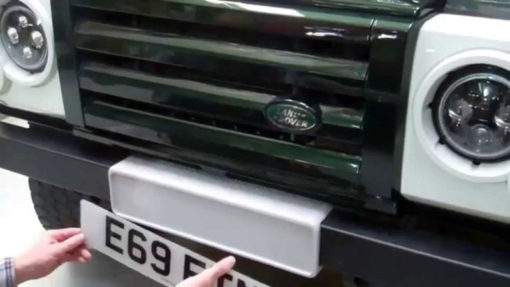
Ben Gribbin
August 15, 2019
Search
Popular Articles
8 Almost Useless Land Rover Mods
11th June 2014
Updated: What Makes a Defender Iconic?
29th November 2011
When it comes to buying a second-hand car, car cloning is something to be aware of so that you can avoid becoming a victim of it. Here are some things that you can check to avoid falling victim to car cloning, which is on the rise in the UK.
What is Car Cloning?
Car cloning is the vehicular equivalent of identity theft. Criminals steal a car and give it a new identity which matches another car already on the road. Usually the legitimate car will be of the same make and model of the cloned car. To clone a car, the criminals will typically alter or disguise the original 17-digit Vehicle Identification Number (VIN) and use a stolen V5C (logbook) to make its identity seem legitimate.
Once a car has been cloned, the illegitimate car will often be involved in some sort of crime. Crimes committed in these cars can vary from parking illegally to being involved in armed robberies. The first an innocent victim will hear about their car being cloned, is when they receive a speeding fine, penalty charge notice or even a visit from the police.
How to Avoid buying a Cloned Car
Although it can sometimes be very difficult to spot a cloned car, often there are giveaways. With a small amount of due diligence, you can drastically reduce the chances of buying a cloned car (otherwise known as a ringer). Here are some steps you can take:
- Before viewing a car, contact the seller and ask them for details such as the registration number and make and model of the car. You can then run these details through the DVLA’s online vehicle enquiry service. You can even check the tax and MOT status of the car, as well as the vehicle’s MOT history. All of this is free of charge.Check the car’s current market value before going to view it. If the price seems too good to be true, then there’s a chance that it is. Make sure the seller has a genuine reason for sale.
- If it’s a private sale, when you come to view the car, check the address on the log book and make sure that it’s the same as the address you are visiting. Be suspicious if a seller wants to meet you in a layby or service station. Also check the VIN number in all of the usual locations (under the carpet near the driver or passenger seat, in the engine bay and underneath the windscreen) and make sure that they match. Then check that this number is identical to the VIN on the V5C.
- If you are serious about buying the car, then consider carrying out an HPI check. Not only will this include a VIN check on the car, but it will also tell you if the car has ever been stolen or written off, as well as if there is any outstanding finance on it.
- When it comes to paying for the car, always use a traceable payment method such as a debit or credit card, or bank transfer. A genuine seller should be more than happy to accept one of these methods, even if it’s just a part-payment.
Buying a cloned car is most people’s worst nightmare. Even if you unknowingly buy a car that turns out to be a clone, you will probably lose both the car as well as the sum of money that you paid for it. Using the advice outlined above you will be able to protect yourself from becoming a victim of car cloning, and you will have peace of mind that the car you have bought is legitimate.
About Us
FunRover is a place for Land Rover enthusiasts to gather as a community and discuss the best 4x4 vehicles ever produced. We're building a library of high quality resources & articles to help owners along in their Land Rover ownership.
Popular Posts
8 Almost Useless Land Rover Mods
11th June 2014
Updated: What Makes a Defender Iconic?
29th November 2011
How to Plastidip your Land Rover Defender
19th August 2014






